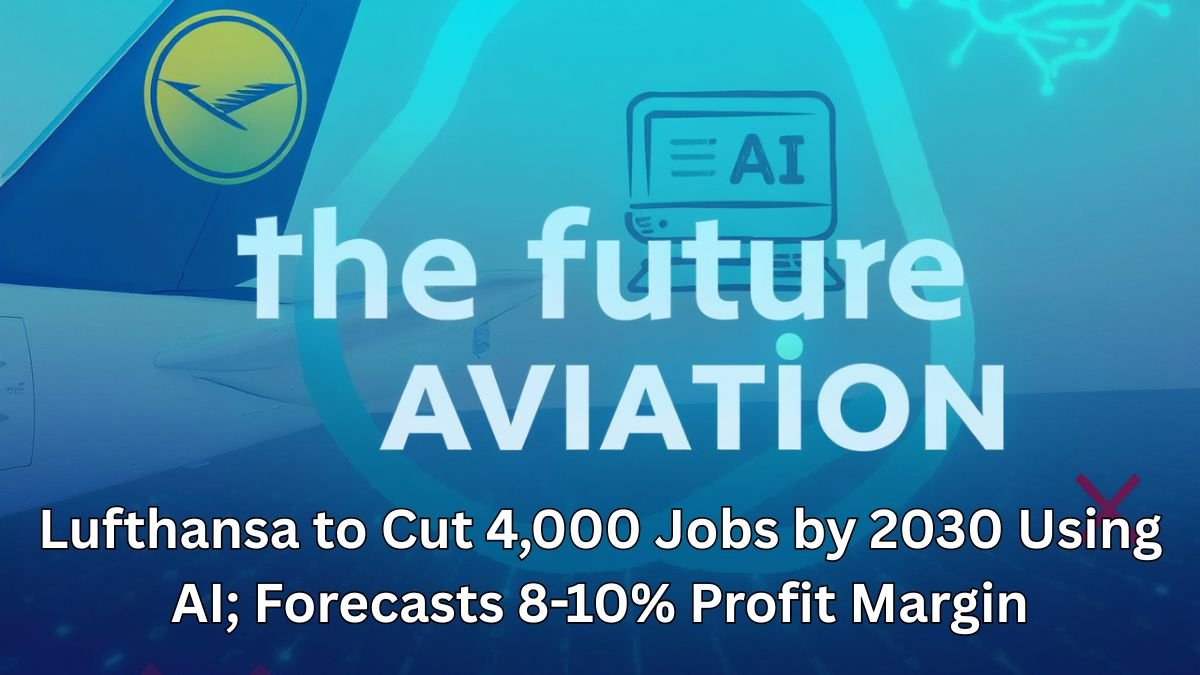FRANKFURT, Germany — The Lufthansa Group, owner of Germany’s flagship carrier and airlines like SWISS and Austrian Airlines, is charting a radically different course for the next decade. The company announced Monday it plans to eliminate 4,000 jobs worldwide by 2030, a major move fueled by a shift toward Artificial Intelligence (AI) and digitalization.
This massive restructuring comes despite a current surge in air travel demand and the airline group’s forecast for “significantly increased profitability” by the end of the decade. The strategy was unveiled at a presentation for investors and analysts in Munich.
The AI-Driven Restructure
Lufthansa confirmed that the job cuts will primarily target administrative and back-office roles, with the majority of the reductions expected in Germany. Crucially, the airline group stated that pilots and other operational staff who directly serve customers are expected to be largely unaffected.
The core reasons for the cuts are twofold:
- AI & Digitalization: The company is betting on “profound changes brought about by digitalization and artificial intelligence” to make its operations vastly more efficient.
- Consolidation: The Group, which includes Brussels Airlines and Eurowings, is pushing for deeper integration across its member airlines. This means eliminating duplication of work and creating leaner, more networked structures.
CEO Carsten Spohr emphasized the necessity of the move, telling staff in a town hall meeting that to compete, the company needs to “become leaner in admin because we cannot afford to maintain our work at the cost that we have now… without modern technology, you have no chance.”
Stronger Profits and Massive Fleet Investment
While cutting staff, Lufthansa’s outlook for its business remains bullish. It noted that strong demand, coupled with global supply chain issues that are limiting the number of available flights, is creating a tight market that keeps planes full and revenue high.
The Group set ambitious new medium-term financial targets for the 2028-2030 period, including an Adjusted EBIT margin of between 8 and 10 percent.
To back this confidence, the company announced the largest fleet modernization in its history. Lufthansa plans to add more than 230 new aircraft by 2030, including 100 long-haul planes, signaling a strong commitment to premium customer experience and future growth despite the internal job overhaul.
Conclusion
Lufthansa is positioning itself as an airline group of the future, where AI and digitalization drive back-office efficiency to deliver soaring profits. The planned cuts of 4,000 non-operational jobs by 2030 are a clear sign of the company’s commitment to a leaner model that leverages technology. For the nearly 102,000 employees (2024 total), this move heralds an era of significant change, with the majority of the impact hitting the German administrative divisions.
Affiliate Disclosure
This news article does not contain any affiliate links. The information provided is for general travel and industry awareness only.
Disclaimer
The information regarding job cuts, financial forecasts, and strategic plans is based on official statements made by the Lufthansa Group at its Capital Markets Day event on Monday, September 29, 2025. These targets and plans are subject to market conditions, economic changes, and successful negotiation with social partners and unions.







